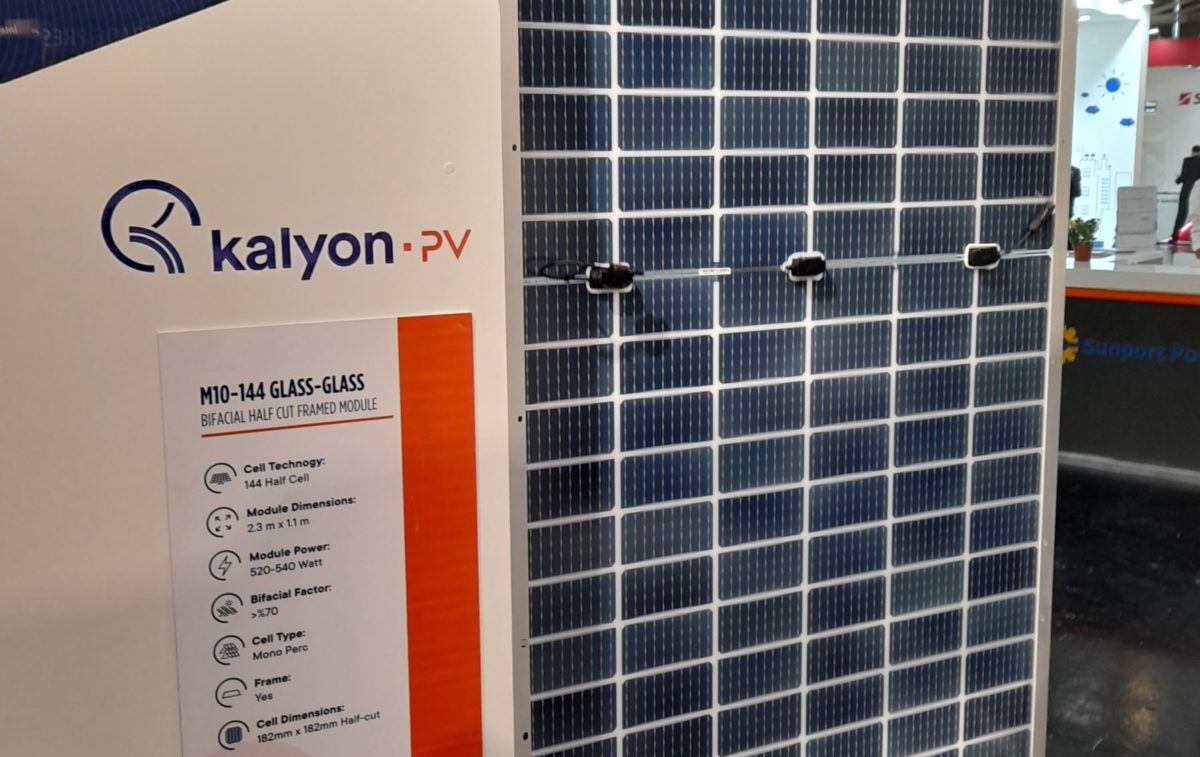Kalyon Enerji, a Turkish solar module manufacturer and project developer, has secured a GBP 217 million ($291 million) guarantee from UK Export Finance (UKEF) to build a 1.35 GW solar project in Karapinar, in Konya province, central Turkey.
“GE Energy Financial Services supported UKEF to agree the deal, with the U.K.’s export credit agency set to guarantee a GBP 217 million buyer credit facility,” the UK government said in a statement. “This will enable GE to deploy its first Flexinverter solar technology outside the US, supporting Turkey’s clean energy goals and facilitating trade for UK suppliers.”
GE Energy Financial Services is the investment unit of General Electric, which made the central inverters that will be used in the Karapinar project. The Flexinverter inverters have already been deployed on the solar plant's first 227 MW section, which is now operational. The full project is scheduled to be completed by the end of this year.
“UKEF’s guarantee will help support over 100 British jobs as the integration of the solar technology and the assembly of the solar power station will occur in the U.K.,” the British government said, in an apparent reference to the assembly of the inverter stations.
The solar modules for the PV project must be produced in Turkey. The project, which was originally set to have a capacity of 500 MW, was tendered by the Turkish authorities on the condition that a vertically integrated solar panel factory had to be built as part of the development of the solar park.
Kalyon Enerji said in November 2020 that it planned to increase the capacity of its ingot-to-module solar factory in Ankara from 500 MW to 1 GW. Kalyon signed an EPC contract with Chinese state-owned conglomerate China Electronics Technology Group Corporation (CETC) for the construction of the factory in October 2019.
The overall project was tendered through the Turkish government's YEKA program in 2017. A consortium formed by Kalyon Enerji and Hanhwa Q Cells was the winner, but the South Korean solar manufacturer ended up walking away from the deal a few months later. CECT replaced Hanhwa Q Cells as a new project partner in October 2019.
The Turkish government decided to subsidize the facility in September 2019 with a TRL 1.99 billion ($333 million) “super incentive.”
This content is protected by copyright and may not be reused. If you want to cooperate with us and would like to reuse some of our content, please contact: editors@pv-magazine.com.




By submitting this form you agree to pv magazine using your data for the purposes of publishing your comment.
Your personal data will only be disclosed or otherwise transmitted to third parties for the purposes of spam filtering or if this is necessary for technical maintenance of the website. Any other transfer to third parties will not take place unless this is justified on the basis of applicable data protection regulations or if pv magazine is legally obliged to do so.
You may revoke this consent at any time with effect for the future, in which case your personal data will be deleted immediately. Otherwise, your data will be deleted if pv magazine has processed your request or the purpose of data storage is fulfilled.
Further information on data privacy can be found in our Data Protection Policy.